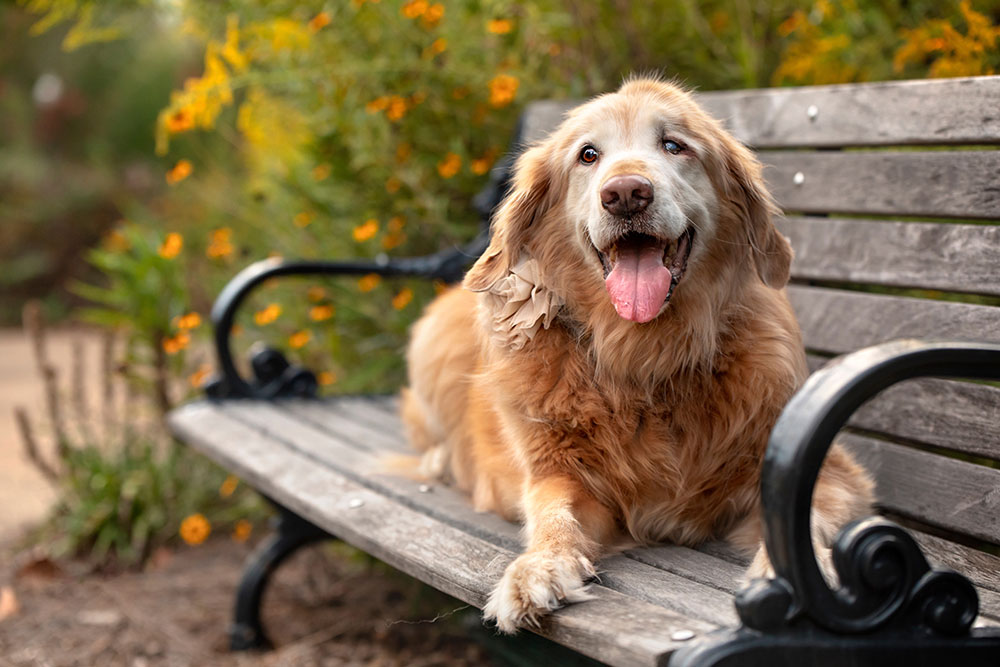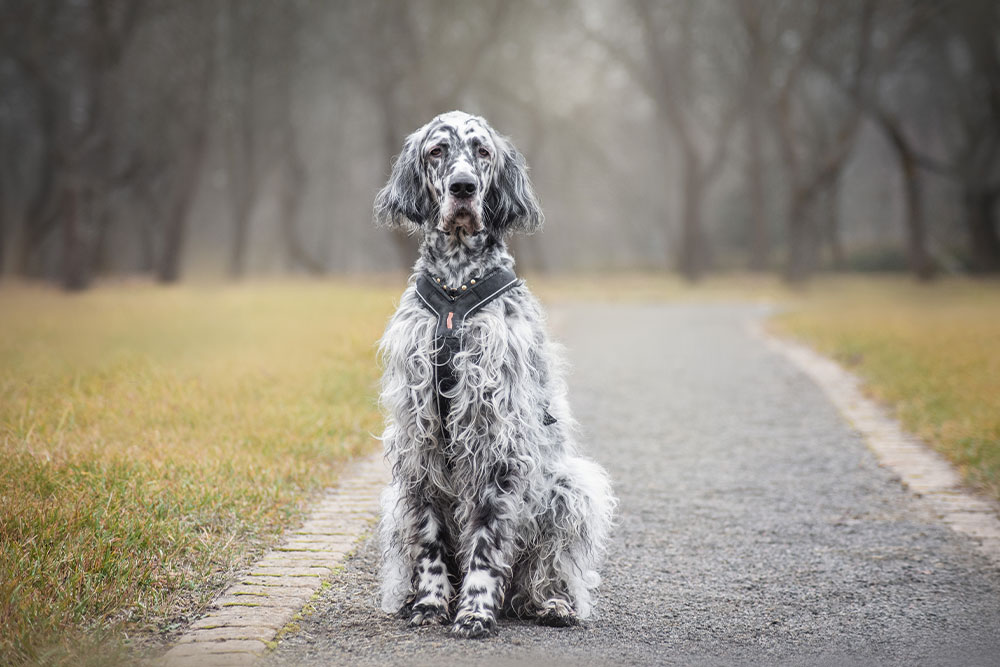As dogs grow older, their health needs naturally shift. Maybe your dog is slowing down on walks, showing more gray around the muzzle, or just seeming “off” in subtle ways. While aging is expected, it often brings questions: What’s normal? What’s not? And how do you know when it’s time to adjust their care?
At Cupertino Animal Hospital, we work closely with pet owners to navigate these changes with clarity and confidence. Many age-related conditions are manageable—especially when caught early—and your awareness plays a major role in keeping your dog healthy and comfortable through their senior years.
When Does a Dog Become a “Senior”?
The answer depends on breed and size. Generally, large and giant breeds reach senior status around 7 or 8 years old, while smaller dogs may not show signs of aging until 10 to 12. But age is just one piece of the picture.
What matters most is noticing changes early and scheduling regular wellness exams to keep tabs on their evolving health. As outlined in AAHA’s veterinary care guidelines for senior pets, consistent monitoring is key to catching disease before it progresses.
Common Diseases in Senior Dogs
Senior dogs are more vulnerable to a variety of health conditions. Here are the ones we most often see—and how you can recognize them.
Osteoarthritis
Dogs with arthritis may limp, hesitate to rise, or tire more easily during walks. This degenerative condition affects joint mobility, but it can be managed. In addition to anti-inflammatories, low-impact exercises can help maintain strength and flexibility.
Dental Disease
Bad breath, yellowing teeth, and red or swollen gums are signs of dental disease, which can cause chronic pain and even affect heart and kidney function. Learn why dental care matters more than you might think, and explore our dental services.
Cognitive Dysfunction Syndrome (CDS)
CDS is often compared to dementia in people. Symptoms may include confusion, restlessness, or forgetting familiar routines. Learn more from Cornell University.
Heart Disease
Coughing, fatigue, and labored breathing may point to heart disease. While often gradual in onset, early diagnosis improves outcomes significantly.
Kidney Disease
Increased thirst and urination, weight loss, and appetite changes are often the first signs of kidney issues in older dogs.
Diabetes
This endocrine disorder causes excessive drinking, increased urination, weight loss, and sometimes cataracts. Learn more from AAHA’s Not So Sweet: Diabetes in Pets.
Hypothyroidism
Sluggishness, weight gain, and thinning fur are often linked to low thyroid function. Cornell University’s resource breaks down symptoms and treatment options.
Cancer
Senior dogs are at higher risk for cancers such as lymphoma, mast cell tumors, and bone cancer. Be alert to lumps, sudden appetite loss, or unexplained weight changes. This guide to types of cancer in pets provides an excellent overview.
What to Watch For
Here are symptoms that may indicate your senior dog is dealing with an underlying issue:
| Symptom | Potential Cause |
| Limping or stiffness | Osteoarthritis, injury |
| Bad breath or difficulty eating | Dental disease |
| Disorientation or restlessness | Cognitive dysfunction |
| Excessive thirst or urination | Diabetes, kidney disease |
| Coughing or fatigue | Heart disease |
| Weight gain and dull coat | Hypothyroidism |
| Lumps or appetite loss | Cancer, metabolic disorders |
These signs may be subtle at first. That’s why we recommend preventive testing for senior pets, even if they seem outwardly healthy.
How We Diagnose Aging Dog Diseases
At Cupertino Animal Hospital, diagnosis begins with a comprehensive physical exam, followed by targeted diagnostics based on your dog’s symptoms. Our in-house diagnostic services include:
- Bloodwork to assess thyroid, liver, kidney, and glucose levels
- Urinalysis to monitor kidney function and detect infections
- X-rays and imaging to evaluate joints, heart, and internal organs
- Cognitive and behavioral assessments to evaluate mental health
Timely diagnosis allows us to intervene early, reducing the impact of disease and improving your dog’s long-term quality of life.
Treatment and Management Strategies
Senior dog care often involves a blend of medical treatment, lifestyle adjustments, and nutritional support. Based on your dog’s diagnosis, we may recommend:
- Medications for pain relief, thyroid support, or heart disease
- Dental cleanings and at-home oral care to reduce inflammation
- Therapeutic diets for kidney function, weight control, or blood sugar regulation
- Supplements to support joint health, brain function, and digestion—Purina’s guide outlines useful options
- Behavioral enrichment and structured routines to slow cognitive decline
Our team will walk you through treatment options and how to make changes that fit your pet’s daily life and comfort level.
Caring for Your Senior Dog at Home
Supporting your dog at home goes beyond medication. Small changes can make a big impact:
| At-Home Tip | Why It Helps |
| Soft, non-slip bedding | Reduces joint pressure and helps mobility |
| Raised food and water bowls | Eases strain on neck and back |
| Ramps or stairs | Prevents injury from jumping |
| Gentle walks and play | Keeps joints moving and weight in check |
| Puzzle toys or enrichment games | Supports cognitive health |
FAQs About Senior Dog Health
How often should my senior dog see the vet?
We recommend twice-yearly visits for dogs age 7 and up to stay ahead of potential issues.
Should I change my dog’s food?
Possibly. Diets formulated for senior dogs can support kidney health, mobility, or calorie control, depending on your dog’s needs.
Is sleeping more normal for senior dogs?
Yes, but excessive sleeping—especially with appetite loss or behavioral shifts—can indicate a medical issue.
Can senior dogs still enjoy walks and play?
Absolutely. With proper pacing and activity adjustments, most senior dogs benefit greatly from regular movement and stimulation.
We’re Here for Every Stage of Your Dog’s Life
Aging is natural—but discomfort doesn’t have to be. At Cupertino Animal Hospital, we provide experienced, compassionate care to help your dog age gracefully. Whether you’re noticing changes or want to be proactive, our team is here to guide you every step of the way.
Contact us today to give your senior dog the support they deserve.
















Leave A Comment